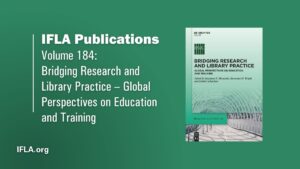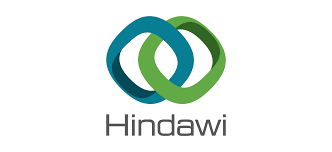|
ISSN Newsletter n° 124 - December 2023
|
|
 ISSN news |
|
|
ISSN International Centre @ CNI Fall 2023 Membership Meeting (Washington D.C., December 11-12, 2023)
|
The video of the presentation delivered by Gaëlle Béquet, Director of the ISSN International Centre, and Thomas Padilla, Internet Archive, about the multi-custodial approach to digital preservation of scholarship has just been made available by the Coalition for Networked Information.
|
|
|
|
 Digital preservation |
|
|
JASPER: a cross-industry preservation collaboration
|
JASPER is a cross-industry collaboration with one main goal: to help open access journals be preserved long-term. The JASPER partners—CLOCKSS, DOAJ, Internet Archive, The Keepers Registry, and Public Knowledge Project (PKP)—collaborated to build on existing trusted infrastructure and services. Since its launch two years ago, JASPER has solicited applications from around 100 journal editors, which led to just over 40 applications being submitted. Of the 32 journals selected, 29 chose to be preserved via CLOCKSS and Internet Archive, and three chose to have their OJS-based publications preserved in the PKP-PN. Fourteen of the 26 journals that chose CLOCKSS and Internet Archive are actively sending full-text content via a DOAJ-Internet Archive-CLOCKSS pipeline.
|
|
|
|
 Libraries |
|
|
New IFLA Publication: Bridging Research and Library Practice – Global Perspectives on Education and Training
|

Bridging the gap between research and practice communities is more pertinent than ever because of the need for evidence in developing and evaluating library services and programs. The issues range from limited transfer of ideas from research into practice to a lack of education in research methods for library practitioners. This book introduces new voices from international research and practice communities into the discussion and contributes to the debate about the research-practice divide. Education and continuing training in research methods from international perspectives are explored and the experiences of researcher-practitioners from several countries highlight the issues.
|
|
|
|
|
Highlights from the IFLA Governing Board meeting, 4-6 December 2023
|
Over three days, IFLA’s Governing Board met for its first in-person meeting since Rotterdam, in a week that marked 100 days since it took office. The meeting was an opportunity not just to look back at what had been achieved, but also to advance key projects, opening the way to further delivery in 2024.
|
|
|
|
|
AI as Next Chapter for Libraries
|
David R. Lankes, Professor of Librarianship at the University of Texas at Austin, discusses the role that libraries and information professionals have in supporting appropriate use of artificial intelligence and tools such as ChatGPT. Included in the article is this useful LibGuide created by library staff at Northwestern University on the use of AI tools in faculty research.
|
|
|
|
|
Building for the future: Kicking off the OCLC – LIBER discussion series
|
To help libraries explore how to respond to these challenges, OCLC and LIBER (Association of European Research Libraries) have launched a multi-year engagement program based on LIBER’s 2023-2027 strategy, which presents a vision for the future of research libraries. The series is called Building for the future, and this year it focuses on state-of-the-art services.
The series will include facilitated discussions on three relevant topics:
Read the summary of the opening plenary.
|
|
|
|
 Open Science |
|
|
Evaluation de la situation de la science ouverte : l’UNESCO publie un rapport
|
|
|
|
|
|
 Open Access |
|
|
New project to strengthen diamond OA in Africa
|
EIFL, AJOL (African Journals Online) and WACREN (the West and Central African Research and Education Network), with support from Wellcome, are launching a three-year project that will strengthen the quality and sustainability of diamond open access (OA) publishing services across Africa while maintaining their diversity. The project will identify challenges for diamond OA publishing in Africa through community consultation and a landscape study, and issue two open calls for proposals for funding to strengthen the quality of diamond OA publishing services across the region.
|
|
|
|
 Publishing Industry |
|
|
Wiley to stop using “Hindawi” name amid $18 million revenue decline
|

Wiley will cease using the beleaguered Hindawi brand name, the publisher announced. Wiley plans to integrate Hindawi’s approximately 200 journals into the rest of its portfolio by the middle of next year.
Hindawi, the open access publisher that Wiley acquired in 2021, has cost the company $18 million in revenue in its latest financial quarter. Hindawi’s journals have been overrun by paper mills, leading to thousands of retractions, journal closures and a major index delisting several titles.
|
|
|
|
|
Springer Nature developing new peer review platform
|
Snapp (Springer Nature’s Article Processing Platform) aims to improve the publishing process and provide a more agile response to the growth in Open Access (OA). Its rollout marks a key investment from the company in the future of publishing. Since initial introduction in 2019, Snapp has supported over 5.6 million authors, 55,000 editors and over half a million reviewers. Over a third of Springer Nature owned journals and nearly half of its OA journals are now live on Snapp, with the rest of its portfolio to follow. More on Snapp and the roadmap for its continued development can be found here and a summary of key outreach to date can be found here.
|
|
|
|
 Scholarly Communication |
|
|
A new guide to publishing academic research from Facet Publishing
|
The Scholarly Communication Handbook has been published by Facet Publishing. This guide explores how to evaluate the best place to publish academic research today. Considering publication types, open access and licensing options, as well as appropriate uses of research metrics and the benefits and setbacks of peer review. Providing a comprehensive overview of the knowledge required for understanding and navigating the scholarly communication landscape.
|
|
|
|
|
Alternative Publishing Platforms: An Analysis
|
This analysis report follows up on the release of a scoping paper in 2022, an overview of what the authors saw as being a vibrant ecosystem of so-called alternative open access publishing platforms. In September 2023, Knowledge Exchange published a report which shares the first results from a survey. The report gives valuable and interesting insight into the world of alternative publishing platforms. This study, the dataset that underpins it and the interactive visualisation tool reveal some interesting key findings.
|
|
|
|
|
Journal Production Guidance for Software and Data Citations
|
Software and data citation are emerging best practices in scholarly communication. This article provides structured guidance to the academic publishing community on how to implement software and data citation in publishing workflows. These best practices support the verifiability and reproducibility of academic and scientific results, sharing and reuse of valuable data and software tools, and attribution to the creators of the software and data.
|
|
|
|
 Standards |
|
|
National Library of New Zealand’s plan to implement the “new” RDA
|
These are the key dates between now and implementation.
• October 2023: first phase of internal training, diving into new concepts and getting comfortable navigating the new Toolkit.
• January 2024: most of the policy statements will be live in the Toolkit following the next planned release at the end of January.
• February 2024: 2nd phase of internal training which will be hands- on and practical.
• May 2024: end of training, documentation finalized and setting a “day 1” implementation date around that time.
Read the report on pp. 8-12
|
|
|
|
|
ANSI/NISO Z39.105-2023, Content Profile/Linked Document Published
|
The National Information Standards Organization (NISO) announced publication of its newest standard, ANSI/NISO Z39.105-2023, Content Profile/Linked Document (CP/LD).
For most disciplines, the journal article remains the primary means of communicating the outputs of scholarly research. As a result, publishing workflows have been largely based on large XML document models. This standard is an application of HTML and JSON-LD to create semantic relationships between content and data elements in scholarly publishing to express self-describing, machine-actionable content for reuse and interchange of scholarly research information.
|
|
|
|
 Events |
|
|
UKSG 47th Annual Conference and Exhibition, Glasgow, UK, 8-10 April 2024
|

The UKSG Annual Conference is a major event in the scholarly communications calendar which attracts delegates each year from around the world – librarians, publishers, content providers, consultants and intermediaries.
Registration is now open, the registration form can be found here.
Please take a look at the programme for the latest announcements on speakers – more are being added, so please do check back.
|
|
|
|
|
NISO Plus Pre-conference about AI and Machine Learning in Scholarly Communications, Baltimore, USA, February 12 2024
|
|
|
|
|
|
|
Now Available! Program for NISO Plus 2024 in Baltimore, USA, February 13–14 2024
|
The NISO Plus 2024 conference will take place in Baltimore, Maryland (February 13–14). Celebrating its fifth anniversary, the conference will continue to bring librarians, publishers, tech and service providers, government agencies, and more to address some of the biggest trends and issues in the information community. Sessions will be organized into three tracks—metadata, open scholarship, and artificial intelligence.
The preliminary agenda is now available, the early bird deadline is January 8.
|
|
|
|
|